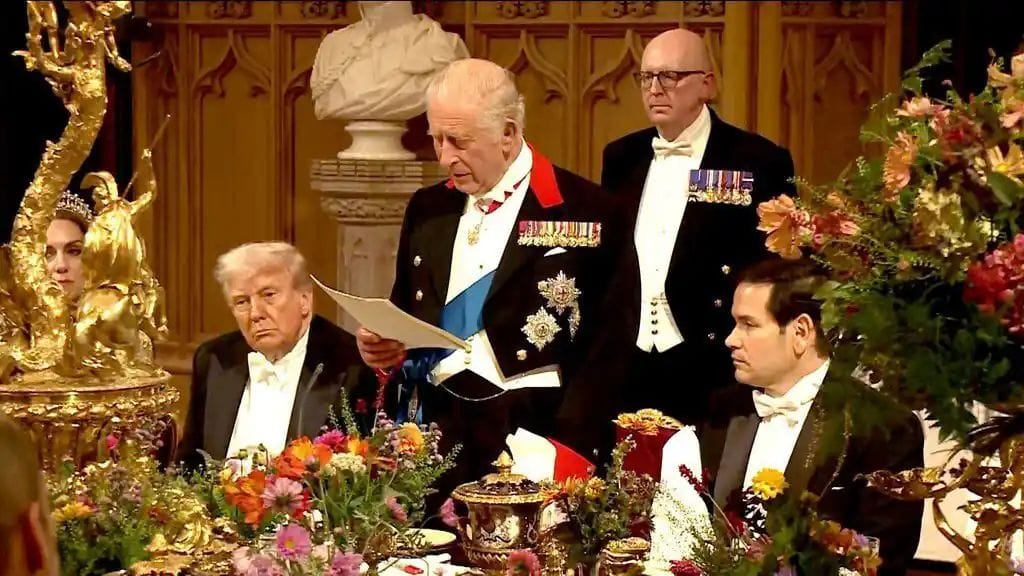A judge blasted Trump’s US deportation policy as migrants from Nigeria and Gambia were flown to Ghana, sparking outrage over legal, political, and human rights issues.
The US deportation policy under President Donald Trump has come under fierce scrutiny after a federal judge accused the administration of deliberately bypassing immigration protections by sending Nigerian and Gambian migrants to Ghana.
The move has triggered legal battles in Washington, political backlash in Accra, and renewed debate over the future of U.S. immigration enforcement.
Judge Rebukes Trump Administration
The confrontation unfolded in Washington, D.C., where Judge Tanya Chutkan of the U.S. District Court convened an emergency hearing.

She sharply criticized the administration, suggesting it had engineered the arrangement with Ghana to skirt U.S. legal requirements that prohibit deportations to unsafe conditions.
“These are not speculative concerns,” Chutkan said.
“The concerns are real enough that even the United States government agrees they shouldn’t be sent back to their home country.”
She ordered the administration to file a report by 9 p.m. EDT detailing the steps it was taking to ensure that deported migrants held in Ghana would not be transferred to Nigeria or Gambia, where they could face persecution or torture.
Secretive Deportations
At the center of the dispute is a deal between Washington and Accra. Ghana’s then-president, John Dramani Mahama, confirmed his country had agreed to accept West African deportees from the United States and that 14 people had already been received.
For critics, this arrangement represents an outsourcing of America’s deportation responsibilities.
Judge Chutkan suggested it was evidence of how the US deportation policy was being manipulated to avoid the legal safeguards that normally protect vulnerable individuals.
Lawsuit Exposes Harsh Treatment
A lawsuit filed on behalf of the migrants provided disturbing details. Five individuals were allegedly taken from a Louisiana detention center, shackled, and placed aboard a U.S. military aircraft without being told where they were headed.
According to the suit, some were restrained in straitjackets for as long as 16 hours. One plaintiff, a bisexual man, was deported directly to Gambia and forced into hiding due to fears of persecution over his sexual orientation.
The other four were being held in a Ghanaian military facility under difficult conditions.
Lawyers warned that unless the court intervened, the men risked being transferred to Nigeria or Gambia, where the dangers were acute and immediate.
Government’s Defense
The Trump administration defended its actions. The Department of Justice argued that once the migrants were no longer in U.S. custody, American courts lacked jurisdiction. It characterized the matter as a diplomatic issue beyond judicial oversight.
The Department of Homeland Security denied the use of straitjackets but did not respond directly to the broader legal and humanitarian concerns raised.
Critics countered that this position revealed the flaws in the US deportation policy, suggesting it was designed less to uphold justice than to avoid accountability.
Backlash in Ghana
The deportations also sparked anger in Ghana. Opposition lawmakers demanded that the agreement with Washington be suspended, noting that it had bypassed parliamentary approval.
They warned that the deal risked staining Ghana’s international image as a champion of human rights by aligning it with what many view as the United States’ “harsh and discriminatory” immigration policies.
Analysts observed that Ghana, often praised for its democratic governance and human rights record, risked appearing complicit in controversial aspects of the US deportation policy.
For critics, the deal undermined decades of diplomatic credibility.
Wider Context of Trump’s Immigration Agenda
This case also highlights the aggressive trajectory of Trump’s immigration agenda. From the 2017 travel ban targeting several Muslim-majority countries to the policy of separating families at the U.S.-Mexico border, Trump’s presidency was marked by efforts to reshape American immigration through tough enforcement.
The Ghana deportee controversy fits into this larger pattern. Legal experts argue it reflects a broader global trend of governments outsourcing migration control to third countries—shifting the burden while evading direct accountability for human rights outcomes.
Judge Chutkan’s intervention shows that U.S. courts remain skeptical of such tactics, particularly when they appear to undermine international protections.
Human Rights at Stake
Human rights organizations stressed that those caught up in the deportations included highly vulnerable groups.
LGBTQ+ migrants face potential imprisonment in countries where same-sex relationships are outlawed.
Political dissidents and conflict survivors risk detention, torture, or worse if returned home.
For these groups, deportation is not merely relocation—it is a question of survival.
This is why campaigners argue the US deportation policy should be evaluated not only through a legal lens but also through humanitarian and ethical standards.
As the legal battle continues, the controversy has left Washington and Accra facing difficult questions. For the U.S., it has exposed weaknesses in its immigration enforcement system.
For Ghana, it has created political and diplomatic tension, with critics warning of reputational damage at home and abroad.
What remains clear is that the episode has laid bare the contentious nature of the US deportation policy, and reignited global debate over how nations balance sovereignty, diplomacy, and the rights of those most at risk.



